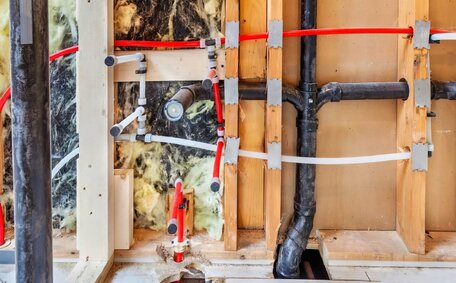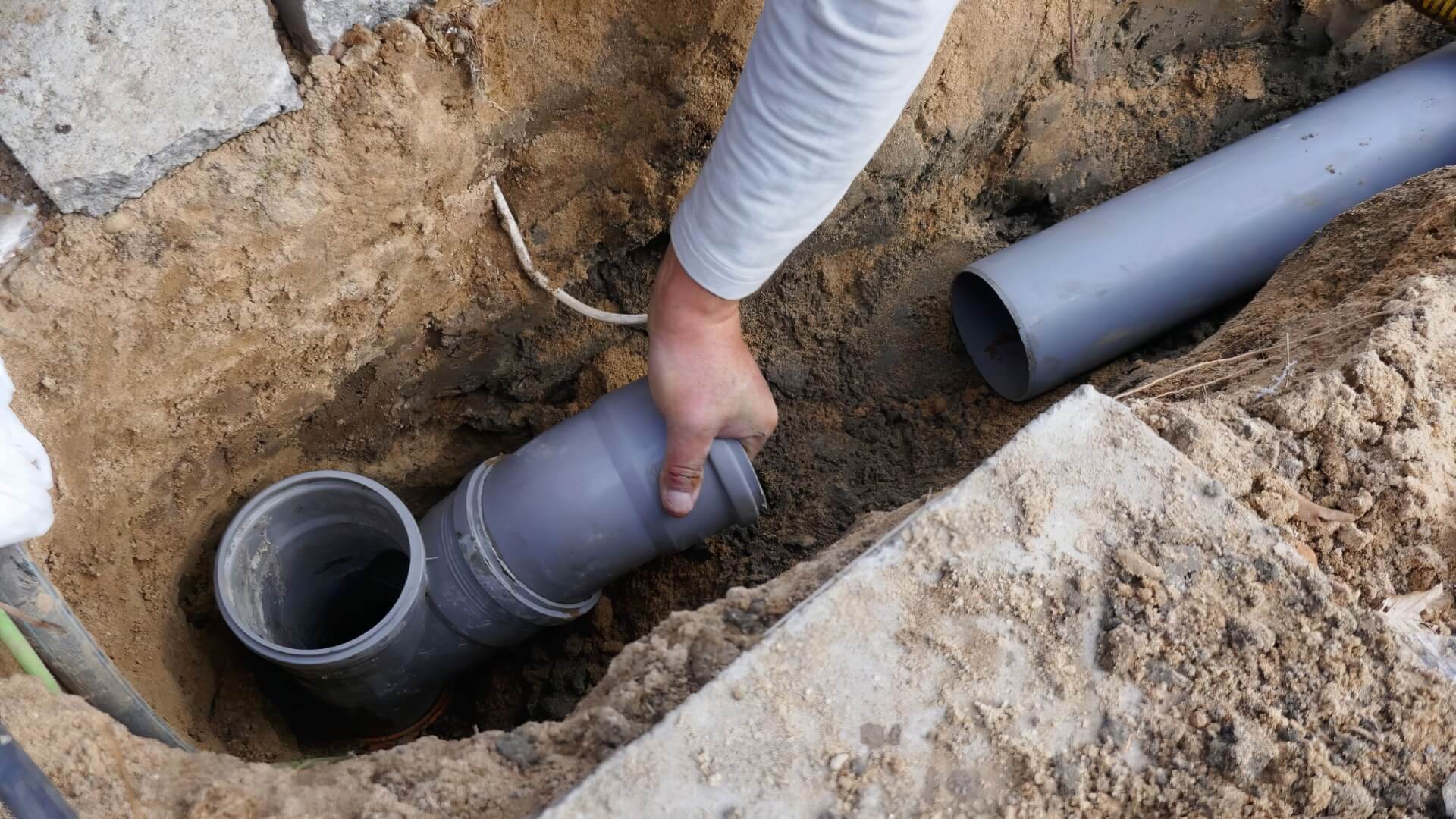Introduction to blocked drains and potential health risks
A properly functioning drainage system is crucial for hygiene and health in your home. When drains obstruct, they transition from mere inconvenience to presenting significant health hazards. Blocked drain clogs, particularly those affecting the septic tank, can lead to severe consequences in your home, posing potentially dire health risks. We will delve into how blocked drains can spread illnesses in your home due to overflowing sinks, toilets, and showers with stagnant water. This guide will also offer methods for the timely resolution of blockages to safeguard your health.
Identifying the causes and signs of a blocked drain is essential for preventing contamination and safeguarding your family from the bacteria, mould, and pests that thrive in such conditions.
Common causes leading to blocked drains
Debris-induced drain blockages can disrupt your home’s plumbing, causing significant issues. Comprehending these causes allows you to prevent blockages by incorporating our preventive measures guide.
- Fats, oils, and grease (FOG): FOG cools and solidifies in pipes, trapping food particles and debris, ultimately restricting water flow and causing damage that leads to blockages.
- Hair: Hair and additional materials like soap and dirt are frequently the primary culprits causing shower drain and sink obstructions. It collects in pipes, combines with soap scum and other materials, and eventually creates clogs.
- Foreign objects: Items such as sanitary products, wet wipes, and cotton swabs can damage your plumbing and should not be flushed down your drains. Since these items don’t disintegrate like toilet paper, they create obstructions, leading to blocked pipes.
- Tree root intrusion: Due to Penrith’s specific climate and soil conditions, tree roots often seek out moisture in the pipes of your plumbing system. When roots infiltrate, they grow and cause blockages within your home’s plumbing.
- Neglect and lack of regular maintenance: Insufficient drain cleaning leads to debris build-up, increasing the risk of serious health issues from blocked drains detected by local plumbers. Ongoing maintenance is pivotal to ensure your sewer system remains free-flowing and devoid of obstructions, thwarting the necessity for expensive repairs.
Health dangers from blocked drains
The health risks from residential blocked drains are significant and demand attention. Stagnant and contaminated water, as well as sewage overflow, can result in serious contamination throughout your home.
Key health dangers from blocked drains include:
- Exposure to bacteria like E.coli or Salmonella stemming from drains in your home can lead to harmful gastrointestinal diseases
- Microbes proliferating in stagnant water can increase health risks from blocked drains
- Potential proliferation of insects and pests
- Mould growth releasing toxic spores, causing respiratory issues or allergic reactions
A blocked drain can cause water to flow back into your home from toilets or basins, covering surfaces with waste that attracts pests. These pests are likewise attracted to odours, and the bacteria that can invade surfaces upon contact is detrimental to your living environment.
Clogged drains may lead to the emission of poisonous gases such as methane or hydrogen sulphide from stagnant water. Long-term exposure to these gases can be harmful, potentially resulting in neurological and organ damage.
Acting promptly upon noticing signs of a blocked drain, such as reduced water flow, loud gurgling noises, unpleasant smells, or pooling water, is crucial for your health. It is important to hire professional help promptly, as a seemingly minor issue can swiftly escalate into a hazardous health emergency if left untreated.
Consult your local professional plumber to inspect your drains as soon as possible when suspicions of a blockage arise. They can get rid of the clog safely and sanitise the area to prevent illness. Be vigilant to diminish the harmful effects blocked drains might exert on the health of your household and avoid taking risks with your family’s wellbeing.
Signs of a blocked drain
Some telltale signs that suggest your drain blocked situation include:
- Slow drainage - Water begins to back up, draining more slowly than usual or not at all, taking a prolonged period to empty from your sink, showers or toilets.
- Gurgling sounds - Loud gurgling noises can be heard from clogged drains as water flowing through them struggles to pass through.
- Unpleasant odours - An unpleasant smell emanating from drains often signals blockages or sewage backing up.
- Pools of standing water - Water amassing around drain openings or seeping out is enough to make it a major red flag for obstructions.
- Lowered water pressure - Noticeable drops in water pressure can indicate partial blockages restricting flow.
- Overflowing sinks/toilets - Blockages can cause water to build-up, with water amassing and overflowing instead of draining away.
Recognising these warning signs is vital to maintaining unobstructed plumbing and averting home damage and hazards. Seek professional diagnosis to implement preventive measures like running cold water to avoid flooding, property damage, or health risks should you suspect a blockage.
Resolving blocked drain issues
Preventing drain blockages: simple measures for healthier homes
Before a blocked drain becomes a health hazard, consider implementing easy-to-follow preventative measures to keep your drains flowing smoothly:
- Use drain covers: Drain covers, also known as drain guards or hair catchers, are an effective barrier that can stop hair and other debris from going down drain and entering your pipes.
- Regularly flush drains with your hot water system: Periodically send hot water down your sink, as an alternative to chemical drain cleaners, to dissolve any accumulating grease, oil, and surplus water waste.
- Dispose of food items and waste properly: Sanitary products, wet wipes, and cotton swabs should never go down toilet drains. Instead, ensure they end up in the bin.
- Maintain your pipes: Scheduled maintenance checks to scrutinise the clogged drain can assist you in preventing potential issues before they turn critical.
DIY or professional help?
Minor drain blockages might be addressable with simple DIY methods. However, it’s crucial to discern when a blockage exceeds DIY solutions. If you have tried unclogging the drain yourself and the problem persists, it is time to call in the experts.
Penrith Plumbing: Your trusted partner in resolving blocked drain issues
Penrith Plumbing provides services such as sanitisation, CCTV inspections, and pipe rehabilitation to ensure your safety and well-being. Our skilled plumbers expertly resolve blockages, safeguarding your home’s safety and health.
Take action now
Don’t let a blocked drain escalate into a health hazard.
If you surmise that your drains are encountering signs blocked or notice any of the warning signs mentioned earlier, reach out to Penrith Plumbing today.






